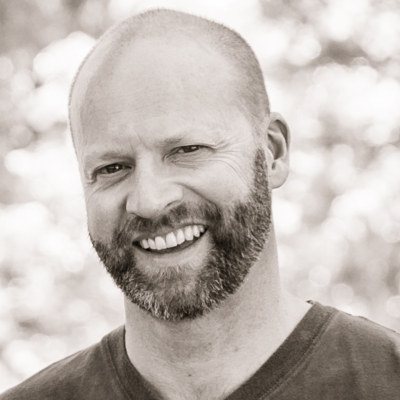Dr. Belous is an Associate Professor, the Director of the Couple and Family Therapy Center at Purdue University Northwest, and a practicing therapist. He is a certified sex therapist and educator, a certified family life educator, and a certified gay-affirmative psychotherapist. He is on the editorial board of the Journal of Marital and Family Therapy and the American Journal of Family Therapy. He is the founding chairperson of the Couples and Intimate Relationships Topical Interest Network and is the treasurer of the Queer and Trans Affirmative Network for the AAMFT. He is a sex and sexuality researcher focusing on social justice and couple and family therapy education and supervision. He has over 20 published works, has given more than 40 presentations at national and international conferences, and has completed 7 different research grants.
The Cass Identity Formation Model
Dr. Belous has done research on the process of coming out and helped people integrate their sexual identity into their holistic concept of themselves. He explains that science has worked to understand the coming out process for years. He gives The Cass Identity Formation Model as an example from the 1970s. Dr. Belous tells us her model begins with ‘confusion,’ the stage where people discover they aren’t heterosexual. ‘Comparison,’ the stage where people decide to act straight or gay, is second. ‘Tolerance’ is the third step; which Chris describes as the stage when people acknowledge their sexuality without fully accepting it. He says that leads to ‘acceptance,’ when a person’s sexual identity is fully accepted, and people start coming out. He tells us the fifth step is called ‘identity pride,’ which is when people become activists, march in parades, and broadcast their sexuality. Her final stage, he explains, is ‘identity synthesis,’ when a person’s sexual identity is integrated with their everyday personality. Chris mentions that this model has many drawbacks, including its presumptions that straight people don’t have to go through sexual identity integration, and its presumption that gay people must believe they’re heterosexual before they realize they’re gay.
A Multidimensional Model of Sexual Identity Formation
Dr. Belous more often works with a multidimensional model of sexual identity formation rooted in social constructionism and developed by Horowitz and Newcomb. He explains that in their model sexual identity is more fluid, and their system is less linear. With the Cass model, people look at their behavior to see where they are on a very linear scale. However, Chris describes Horowitz and Newcomb’s model as referencing behaviors, desires, and experiences to form a coherent but temporary understanding of one’s sexual identity.
The Minority Stress Theory
Chris explains that the minority stress theory was initially developed by Ilan Meyer to describe LGBTQ+ identities, but has expanded to include other minorities like race, ethnicity, and culture. When used in the context of sexual identity it codifies the fact that being LGBTQ+ is more stressful than being cisgender and heterosexual. Dr. Belous relates that the crux of the matter is that gay people have to come out repeatedly and coming out always involves theoretical or actual threats to their emotional, physical, and social safety. Stress is also compounded, Chris tells us, by the need to constantly fight against assumptions due to their sexuality. Mental health concerns like anxiety and depression are much higher in the LGBTQ+ community, and Dr. Belous believes that this theory accounts for that disparity.
Coming Out is More Stressful than Staying Closeted
Chris tells us that research has proven coming out is more stressful than staying closeted. In many parts of the world, he reminds us, coming out means you’re risking your life, while it’s a minor issue elsewhere. He tells us deciding to come out is influenced by their family of origin, personal values, and beliefs, and the environment one lives in. In Dr. Belous’ research men often claimed they had to come out because of the depression, anxiety, irritability, and aggression that resulted from being closeted. Nearly half of the men he interviewed exhibited stereotypically gay traits that made people assume they were gay before they came out.
How to Come Out
Dr. Belous acknowledges that there is a lot of information online about coming out but reminds us that their information is usually based upon one person’s very good or very bad experience with coming out. He encourages people to watch the videos and consider the advice out there, but he reminds us that your own experience of coming out may be very different. His advice is to think about the people in your life to find the person it’s safest to come out to. He says you should look for someone who’s very supportive and an ally of the community. Chris warns that coming out is hardest the first time, and he encourages practicing first, but he emphasizes that you deserve to feel authentic and to be relieved of the weight of this secret.
Coming Out Safely
When helping people come out, Dr. Belous emphasizes safety. Coming out to the wrong parents can lead to being kicked out and starting a downward spiral that leads to drug use and sex work. Those risks mean Chris advises some minors to remain closeted while living with their parents. Waiting until you are taking care of yourself or you have another place to live and sleep if things go wrong is essential.
Impact of Stereotypes on Sexual Identity
Dr. Belous explains that people like to put others into simple, stereotyped categories. He says that when gay men come out, people expect them to fit feminine stereotypes. Similarly, lesbians are expected to be masculine, and women with masculine traits are assumed to be lesbians. He says stereotypes can hinder people’s desire to come out because they can make people feel like they don’t fit in as a gay person when they don’t fulfill those stereotypes.
Chris points out that people who are bisexual, pansexual, demisexual, or any other sexual identity that doesn’t fit in the heterosexual or homosexual box often run into similar problems. They can be rejected by both communities for not choosing one or the other. Bisexuals also suffer from bi-erasure, which Dr. Belous illustrated by describing a bi man in a relationship with a woman. He also explains bi privilege, when happens when bi people are out with their different-sex significant other and have most people recognize their relationship and treat them appropriately, while homosexual men and women are often presumed to be friends or brothers.
Advice for Parents
He advises all parents to think about what values they want to communicate to their child, and what kind of person they want their child to become. Parents also need to identify things that are 100% unacceptable to them. When this happens, Chris says visiting a therapist to make a plan for when those things happen is a good idea, because if you don’t have a plan, you’re not going to react well. He suggests not under or overreacting if your child comes out as a homosexual.
If you suspect your child is gay, be as supportive of the LGBTQ+ community as possible and talk about homosexuality and how it’s okay when it comes up. Those small changes can be enough to make children feel safe coming out. Chris also reminds us that there are completely heterosexual people who interact with the world in ways that mimic gay stereotypes. Those children will frequently be mistaken for homosexuals, and it’s important not to presume your child is homosexual because of stereotypes they personify.
Resources for Christopher Belous:
https://academics.pnw.edu/marriage-family-therapy/member/christopher-k-belous-phd-lmft/
https://www.instagram.com/chrisbelous/
More info:
Link to the free guide – Talking About Sex: http://bettersexpodcast.com/talk
Join my email list here: http://bettersexpodcast.com/list
Book and New Course – https://sexwithoutstress.com
Web – https://www.bettersexpodcast.com/
Sex Health Quiz – http://sexhealthquiz.com/




